- 1. Understanding the Connection Between Diet and Dental Health
- 2. How Food Affects Your Teeth and Gums
- 3. Key Nutrients for Strong Teeth and Gums
- 4. Foods to Avoid for Optimal Dental Health
- 5. Real-Life Examples: How Diet Can Impact Dental Health
- 6. How to Improve Dental Health Through Diet
- 7. Recommended Products for Better Oral Health
1. Understanding the Connection Between Diet and Dental Health
The link between diet and dental health is undeniable. What we eat not only influences our overall health but directly affects the health of our teeth and gums. A balanced diet plays a crucial role in preventing common dental issues like cavities, gum disease, and enamel erosion. By understanding the connection between diet and dental health, you can make informed choices that promote a healthier smile.
Our teeth and gums are constantly exposed to the effects of food, and maintaining good dental care through diet can help protect them from common threats like bacteria buildup and decay.
2. How Food Affects Your Teeth and Gums
Foods and beverages we consume can have a direct impact on the health of our teeth. Sugary and acidic foods are particularly harmful because they encourage the growth of bacteria, which produce acids that erode tooth enamel. This erosion can eventually lead to cavities, tooth sensitivity, and other dental problems.
On the other hand, certain foods can help strengthen tooth enamel, neutralize acids, and improve gum health. Understanding these effects is vital for making better dietary choices that protect your oral health in the long term.
3. Key Nutrients for Strong Teeth and Gums
There are several key nutrients that are essential for maintaining healthy teeth and gums:
- Calcium: Calcium is crucial for strong tooth enamel and bone health. Dairy products, leafy greens, and fortified plant-based milks are excellent sources.
- Vitamin D: Vitamin D helps the body absorb calcium. Foods like fatty fish, egg yolks, and fortified cereals are great sources of vitamin D.
- Vitamin C: Vitamin C supports healthy gums by strengthening blood vessels and connective tissue. Citrus fruits, strawberries, and bell peppers are rich in vitamin C.
- Phosphorus: Phosphorus works alongside calcium to strengthen enamel. Foods like eggs, nuts, and legumes are high in phosphorus.
- Fluoride: Fluoride helps prevent tooth decay by making enamel more resistant to acids. It can be found in fluoridated water and some toothpaste brands.
Incorporating these nutrients into your diet can help maintain healthy teeth and gums, contributing to long-term dental health.
4. Foods to Avoid for Optimal Dental Health
Just as there are foods that promote dental health, there are also foods that can be detrimental to your teeth. Here are some foods to limit or avoid for optimal oral health:
- Sugary Snacks: Candies, pastries, and sugary snacks feed harmful bacteria in your mouth, leading to plaque buildup and cavities.
- Carbonated Beverages: Soda and other sugary drinks are highly acidic, which can erode enamel over time.
- Sticky Foods: Dried fruits and sticky candies can get trapped in your teeth, providing a constant source of sugar for bacteria.
- Highly Acidic Foods: Citrus fruits and vinegar can contribute to enamel erosion if consumed excessively.
Being mindful of these foods and moderating their intake can significantly reduce the risk of tooth decay and gum disease.
5. Real-Life Examples: How Diet Can Impact Dental Health
Consider the story of Emily, a 30-year-old woman who frequently consumed sugary snacks and soft drinks. She visited her dentist for a routine checkup and discovered multiple cavities and signs of gum disease. After making dietary changes—reducing sugar intake and adding more calcium-rich foods like cheese and leafy greens—Emily’s oral health improved dramatically. Her dentist reported that her teeth and gums were healthier at her next visit.
This example shows how making simple dietary changes can have a profound impact on dental health, preventing further damage and promoting healing.
6. How to Improve Dental Health Through Diet
To improve dental health, focus on a diet that is rich in the essential nutrients mentioned earlier while limiting harmful foods. Here are a few practical tips:
- Drink plenty of water: Water helps rinse away food particles and bacteria that can contribute to plaque buildup.
- Choose whole fruits over dried fruits: Fresh fruits like apples and pears are less sticky and more hydrating for your mouth.
- Incorporate more dairy: Dairy products like yogurt and cheese provide calcium, and cheese can even help neutralize acids in the mouth.
- Limit sugary drinks: Opt for water or unsweetened beverages instead of sugary sodas or juices.
By making these changes, you can significantly improve your oral health, reducing the risk of cavities and gum disease.
7. Recommended Products for Better Oral Health
If you're looking for products that can help you improve your dental health, consider adding these to your routine:
- Fluoride Toothpaste: Choose a toothpaste with fluoride to protect your teeth against decay and enamel erosion.
- Electric Toothbrush: An electric toothbrush, such as [Brand], provides a more thorough clean compared to manual brushing.
- Dental Floss: Use high-quality dental floss to remove food particles and plaque between your teeth.
For additional tips and quality dental products, visit Dentistry Toothtruth.

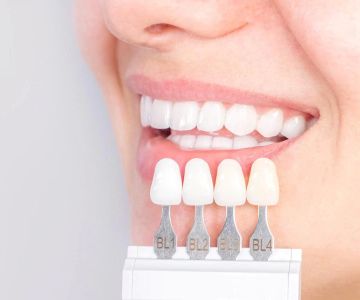

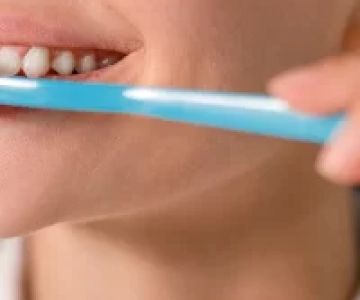
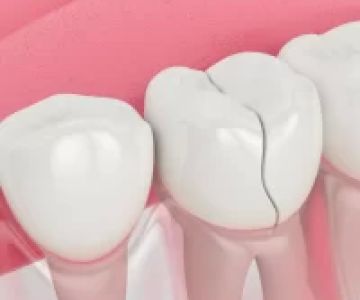
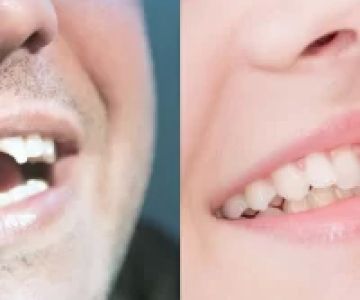
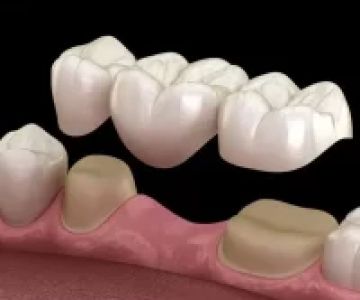
 The Smilist Dental North Babylon4.0 (632 review)
The Smilist Dental North Babylon4.0 (632 review) Dr. Matt Orthodontics (Formerly known as Walker Orthodontics)5.0 (164 review)
Dr. Matt Orthodontics (Formerly known as Walker Orthodontics)5.0 (164 review) Amber L. Pearson, DDS3.0 (2 review)
Amber L. Pearson, DDS3.0 (2 review)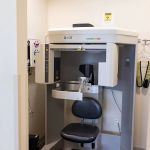 Apple Grove Dental4.0 (536 review)
Apple Grove Dental4.0 (536 review) Coastline Dental - Dr. Randal Leoni5.0 (63 review)
Coastline Dental - Dr. Randal Leoni5.0 (63 review) Aspen Dental - Bismarck, ND4.0 (420 review)
Aspen Dental - Bismarck, ND4.0 (420 review) The Importance of Oral Health Education During Pregnancy for a Healthy Pregnancy
The Importance of Oral Health Education During Pregnancy for a Healthy Pregnancy Best Tips for Brushing Your Teeth Properly for Healthy Gums: Essential Techniques for Oral Health
Best Tips for Brushing Your Teeth Properly for Healthy Gums: Essential Techniques for Oral Health Why Skipping Dental Checkups Can Lead to Bigger Oral Health Problems
Why Skipping Dental Checkups Can Lead to Bigger Oral Health Problems Advantages of Porcelain Dental Restorations
Advantages of Porcelain Dental Restorations How Can Diabetes Cause Tooth and Gum Problems? Preventing and Managing Oral Health Issues
How Can Diabetes Cause Tooth and Gum Problems? Preventing and Managing Oral Health Issues Healthy Habits for Promoting Good Oral Health and Hygiene: Tips for a Healthy Smile
Healthy Habits for Promoting Good Oral Health and Hygiene: Tips for a Healthy Smile